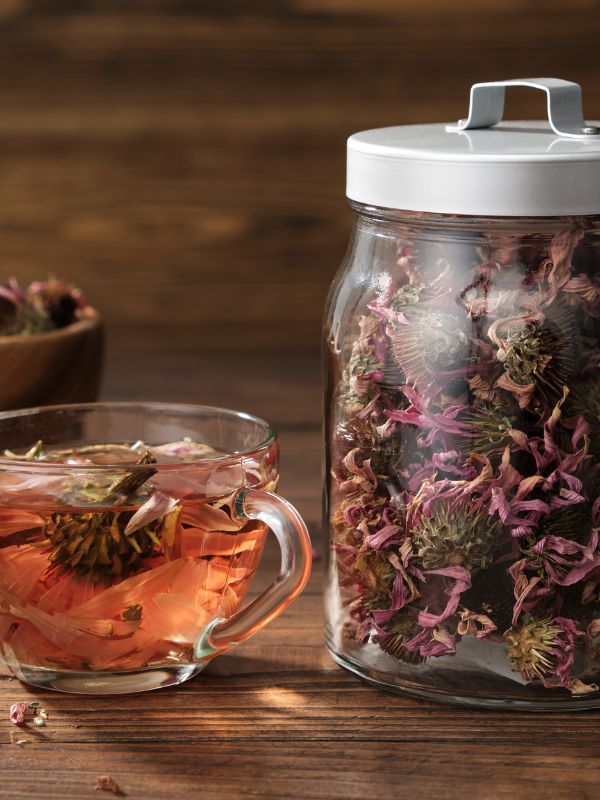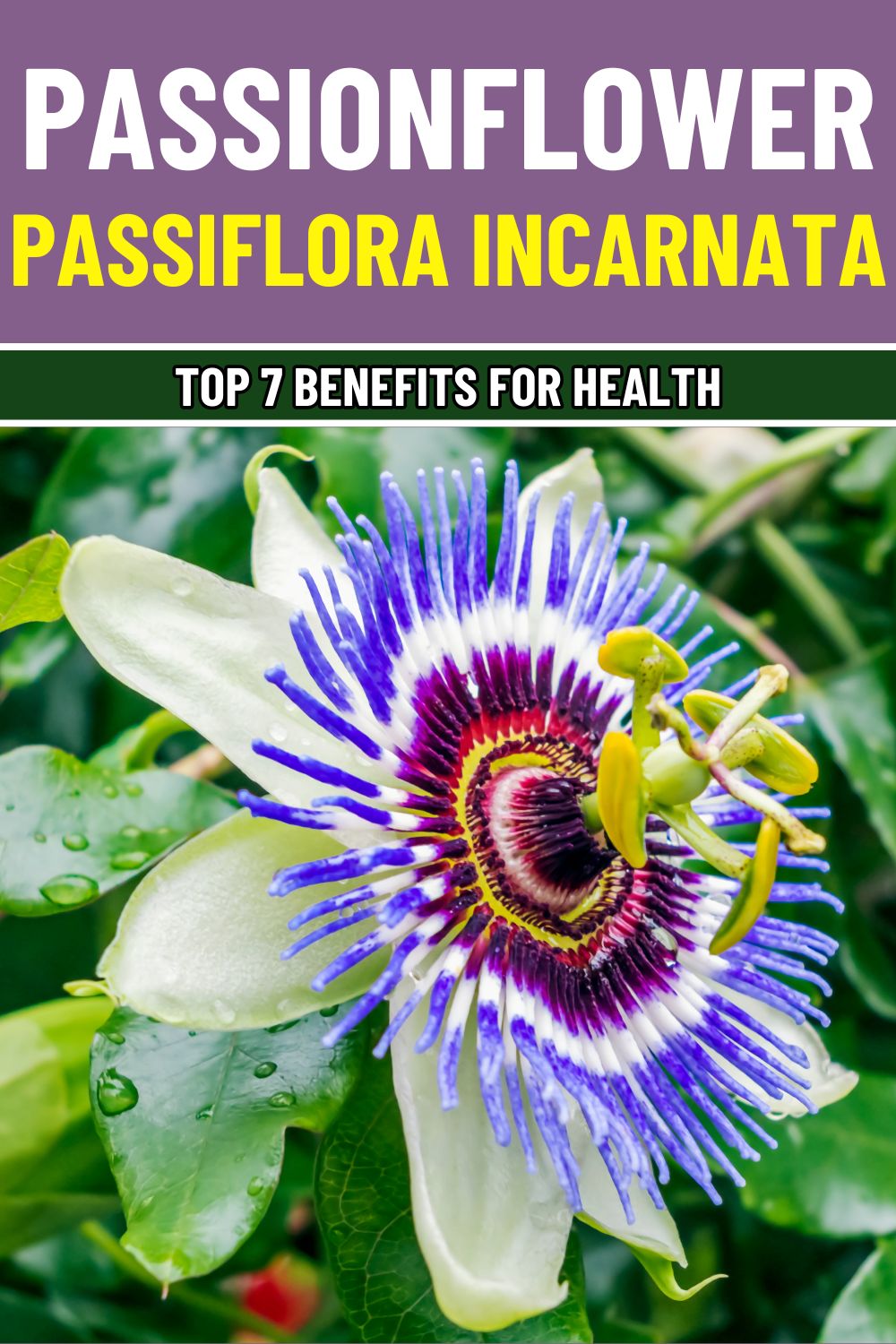Passionflower (Passiflora incarnata), a captivating vine native to South and Central America, has been cherished for centuries for its profound therapeutic benefits.
Known for its vibrant flowers and calming properties, this plant has become a natural remedy for modern ailments like stress, insomnia, and mood disorders.
Scientific research continues to uncover its remarkable effects, making it a favorite in both traditional medicine and contemporary wellness practices. Let’s explore the incredible benefits of Passionflower.
#1. Supports Restful Sleep
Passionflower works by increasing levels of gamma-aminobutyric acid (GABA) in your brain, which slows overactive thoughts and promotes relaxation. This helps you fall asleep faster and enjoy deeper, more restorative rest.
A study in Phytotherapy Research showed that drinking passionflower tea daily improved sleep quality within a week. Unlike synthetic sleep aids, it leaves you refreshed and alert in the morning, making it a natural solution for insomnia.

#2. Reduces Anxiety and Stress
Modern life can feel overwhelming, but passionflower’s natural anxiolytic properties can help ease the burden. Its active compounds, including flavonoids, calm the nervous system and reduce symptoms of anxiety and stress.
Research published in the Journal of Clinical Pharmacy and Therapeutics demonstrated that Passionflower was as effective as a leading anti-anxiety medication in treating generalized anxiety disorder.
The bonus? It achieves this without causing drowsiness or dependence.

#3. Boosts Mood Naturally
Passionflower’s ability to regulate neurotransmitters like serotonin and dopamine can uplift your spirits. Its Harman alkaloids support emotional balance, helping to reduce mild depression and promote a positive outlook.
Herbalists often recommend Passionflower for those experiencing mood swings or emotional fatigue. By soothing the mind and enhancing mental clarity, this plant empowers you to face challenges with renewed confidence.

#4. Promotes Heart Health
Your heart benefits significantly from passionflower’s stress-relieving and antioxidant properties. It helps lower blood pressure by relaxing blood vessels, reducing the strain on your cardiovascular system.
Additionally, its rich antioxidant content combats oxidative stress, a leading cause of heart disease.
A study in the Journal of Ethnopharmacology highlighted passionflower’s ability to lower systolic blood pressure, making it a heart-friendly addition to your wellness routine.

#5. Soothes Pain and Inflammation
Whether chronic pain, headaches, or menstrual cramps, passionflower’s analgesic and anti-inflammatory properties offer natural relief. Passionflower helps ease discomfort effectively By calming nerve activity and reducing inflammation.
Passionflower is particularly beneficial for conditions like fibromyalgia or tension headaches, where pain management is essential. You can incorporate it into your daily regimen to improve your quality of life.

#6. Enhances Focus and Mental Clarity
For those battling brain fog or lack of concentration, passionflower is a game-changer. It supports cognitive function by promoting relaxation without sedation, allowing you to stay sharp and focused.
Studies suggest that passionflower can be helpful in managing ADHD symptoms, providing a natural alternative to pharmaceutical treatments. Its calming effect on the nervous system helps improve focus and reduce impulsivity.
#7. Improves Skin Health
The antioxidants in passionflower, such as flavonoids and alkaloids, protect your skin from environmental damage and premature aging.
Moreover, its anti-inflammatory properties help soothe irritated skin, making it a popular choice for natural skincare remedies.
Whether applied topically as a poultice or consumed in tea form, passionflower supports healthy, glowing skin by neutralizing free radicals and reducing inflammation.

How to Use Passionflower
- Passionflower tea: Steep 1–2 teaspoons of dried passionflower in boiling water for 10–15 minutes. Drink 1–2 cups daily to promote sleep and relaxation.
- Tincture: Take 2–8 ml of passionflower tincture mixed with water up to three times daily for anxiety and mood support.
- Poultice: Crush fresh leaves and apply them directly to wounds or inflamed areas for soothing relief.
- Capsules: Convenient pre-dosed capsules are available; follow the manufacturer’s dosage guidelines.
- Bath soak: Add dried passionflower leaves to a warm bath to relieve stress and relax your muscles.

Cautions and Precautions
While passionflower is generally safe, it’s crucial to use it responsibly. Overconsumption can lead to dizziness or excessive sedation. Avoid combining it with sedatives, anti-anxiety medications, or alcohol, as it may amplify their effects.
Pregnant and breastfeeding women should avoid passionflower due to its potential to stimulate uterine contractions.
Always consult a healthcare professional before starting any herbal remedy, especially if you are on medication or have underlying health conditions.
Disclaimer
This article is for informational purposes only and is not a substitute for professional medical advice.
Consult your healthcare provider to determine if Passionflower is suitable for you.

The Secret Healing Powers of Passionflower Revealed
